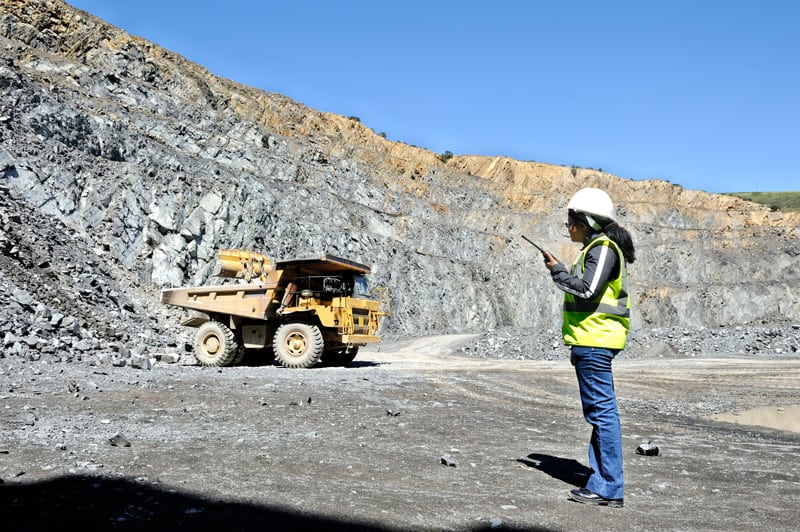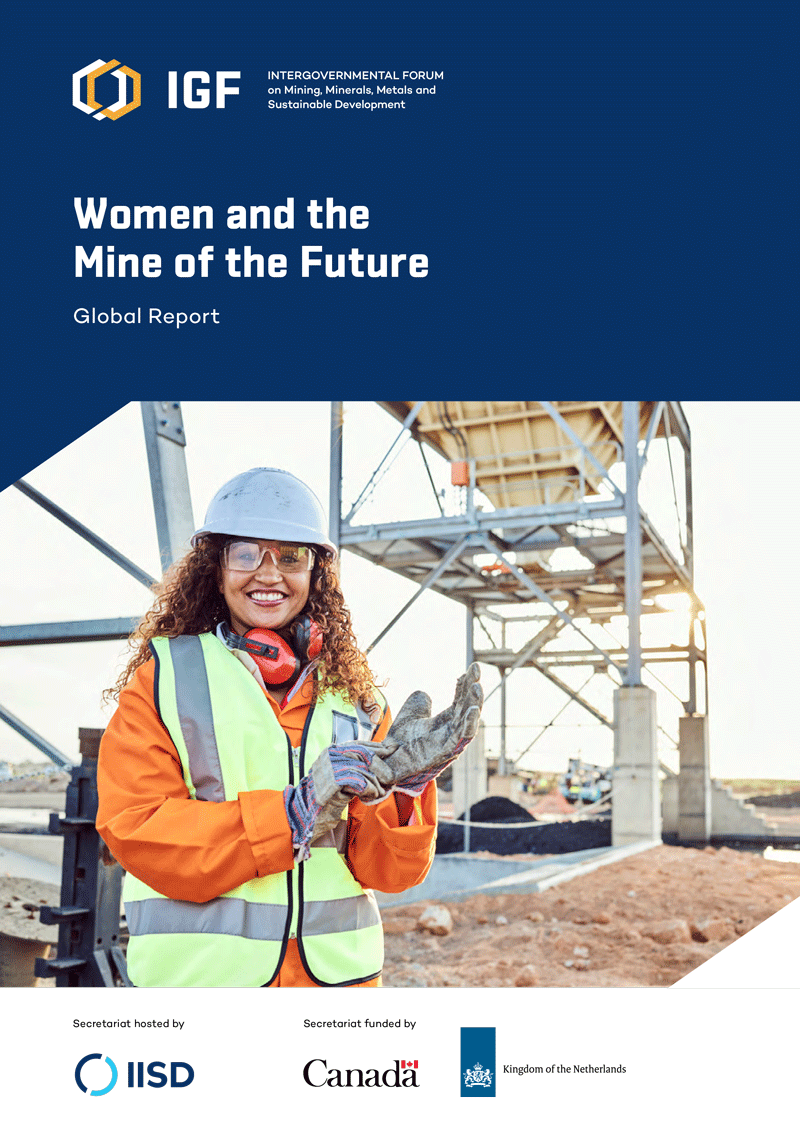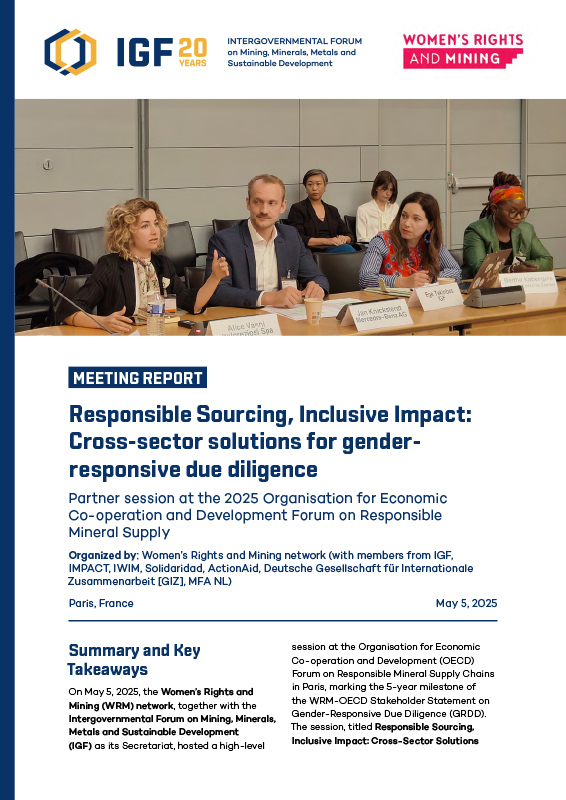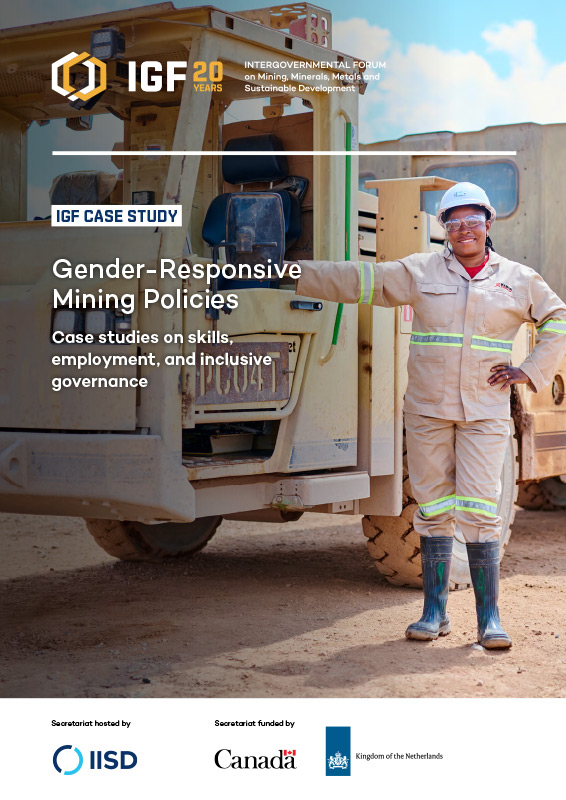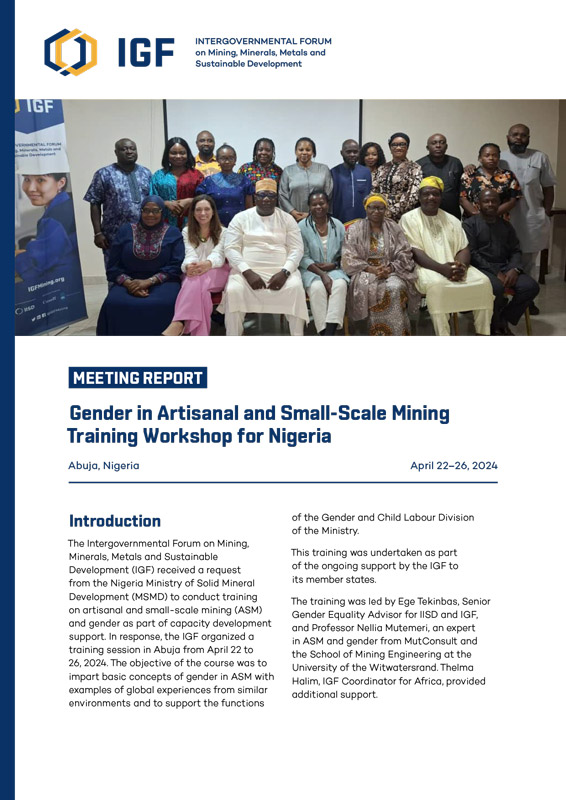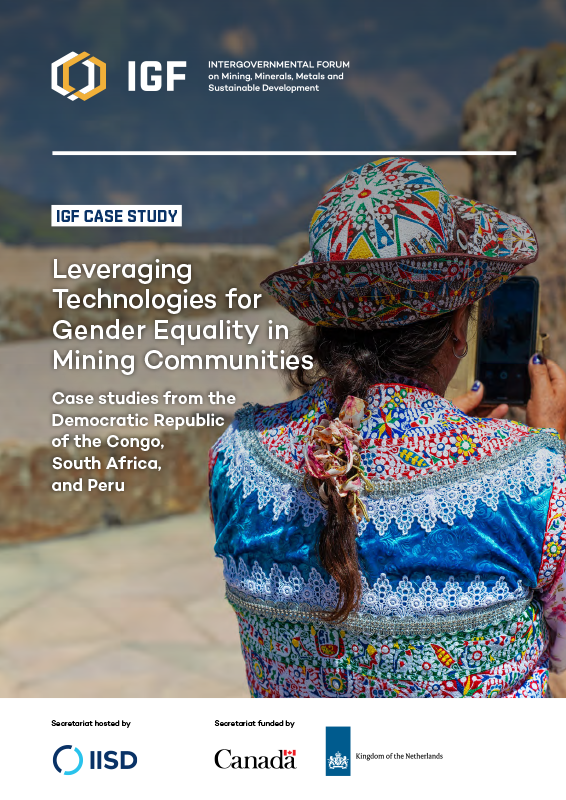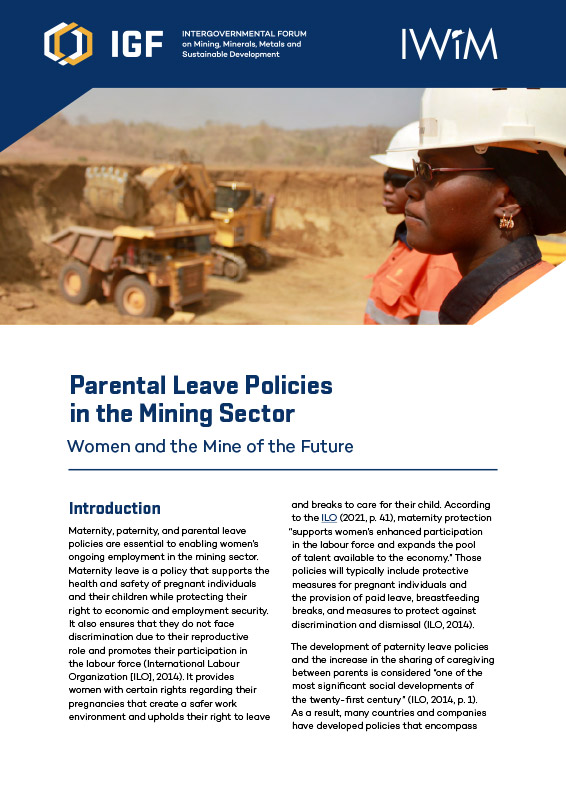E-Learning Courses
Do you want to strengthen your skills and knowledge to advocate for women in mining and affected communities?
- The Fundamentals of Gender Equality and Mining Governance is a new 2-3 hour course that outlines actions for governments, industry, and civil society to fight women’s systemic exclusion, facilitate their meaningful engagement in mining, and help eliminate gender-based violence in mining communities. This course is free for anyone and can be completed in 2-3 hours. It is available now in English with French, Spanish, and Russian translations to be available soon.
This express course was developed by the IGF, in partnership with the United Nations Development Programme and the Swedish Environmental Protection Agency through the Environmental Governance Programme. Its condensed curriculum is based on a more in-depth course created by the partners.
- The Gender and Mining Governance goes more into more depth with six modules, fully translated in English, French, and Spanish.

